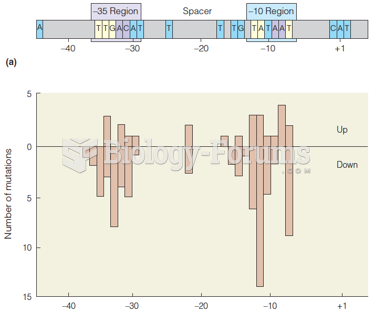|
|
|
Did you know?
There are more sensory neurons in the tongue than in any other part of the body.
Did you know?
In most climates, 8 to 10 glasses of water per day is recommended for adults. The best indicator for adequate fluid intake is frequent, clear urination.
Did you know?
For high blood pressure (hypertension), a new class of drug, called a vasopeptidase blocker (inhibitor), has been developed. It decreases blood pressure by simultaneously dilating the peripheral arteries and increasing the body's loss of salt.
Did you know?
The horizontal fraction bar was introduced by the Arabs.
Did you know?
By definition, when a medication is administered intravenously, its bioavailability is 100%.







